Venezuelan dictator Nicolás Maduro’s second-in-command, United Socialist Party of Venezuela (PSUV) leader Diosdado Cabello, mused on Monday that his country could engage in a Ukraine-style invasion of Colombia to “de-cocainize” the country.
Maduro has enthusiastically supported Russian leader Vladimir Putin’s decision to launch a full-scale invasion of Ukraine in February, repeating Putin’s claims that efforts to topple the democratically elected government of Ukrainian President Volodymyr Zelensky were made to “de-Nazify” Ukraine. Maduro has also spread misinformation online, sharing videos on social media of scenes from Servant of the People, the comedy show Zelensky starred in before being president, and claiming them to be real images of Zelensky’s political career.
Russian officials have not only addressed alleged Nazi organizations in Ukraine but referred to Zelensky himself as a “neo-Nazi president.” Zelensky has repeatedly refuted Putin’s accusation of ties to Nazism, noting that he is Jewish and lost family in the Holocaust.
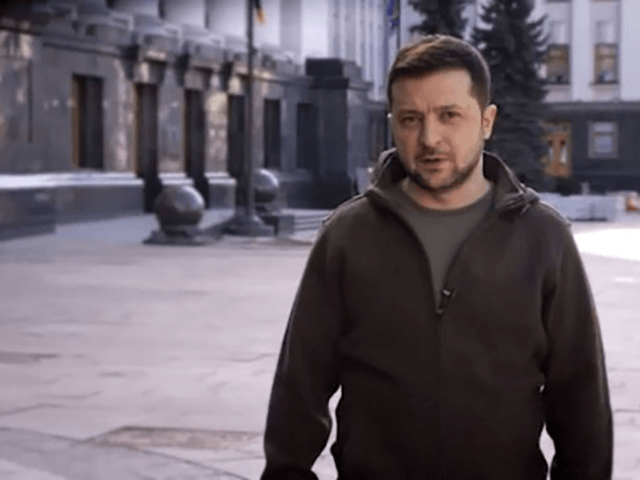
Ukrainian President Volodymyr Zelensky, pictured in Kyiv, issued an address via Facebook calling on Ukraine’s allies to increase their support during the Russian invasion. (Photo by Ukrainian Presidential Press Office/ UPI)
Russia is one of Maduro’s closest financial backers, offering billions of dollars in loans and arming his socialist regime with military aid.
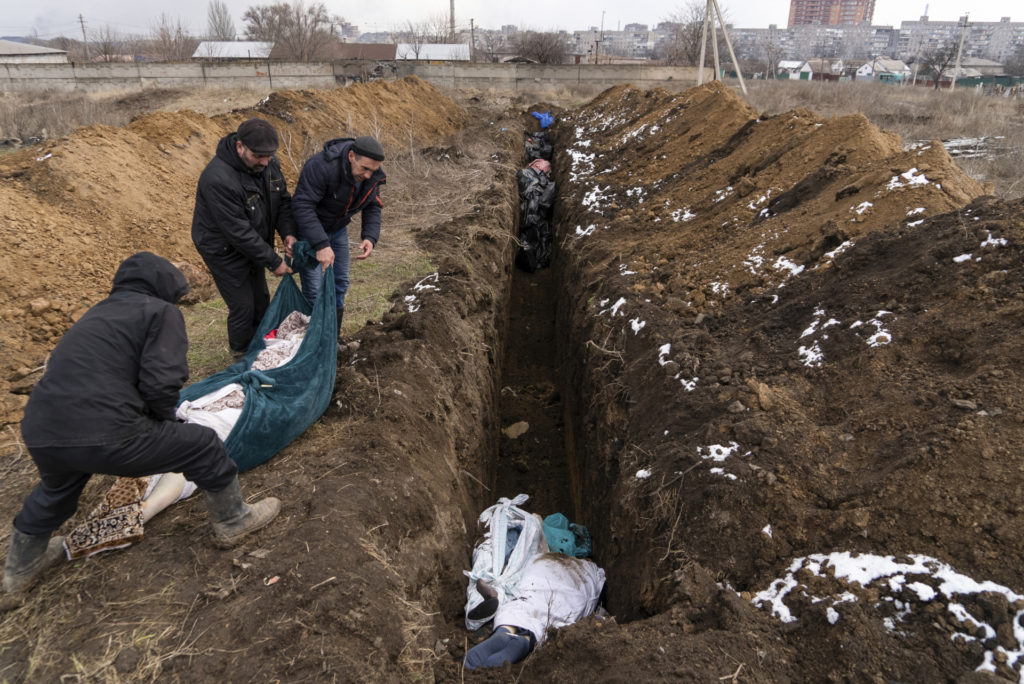
Dead bodies are placed into a mass grave on the outskirts of Mariupol, Ukraine, Wednesday, March 9, 2022. (AP Photo/Mstyslav Chernov)
In remarks during a televised socialist party meeting on Monday, Cabello applauded Russia for “doing the entire world’s work alone,” suggesting that attacking Ukraine benefits the rest of the planet, and accused international media of falsely “selling [an image of] Russia as an aggressor, when in reality the aggrieved [party] is Russia.”
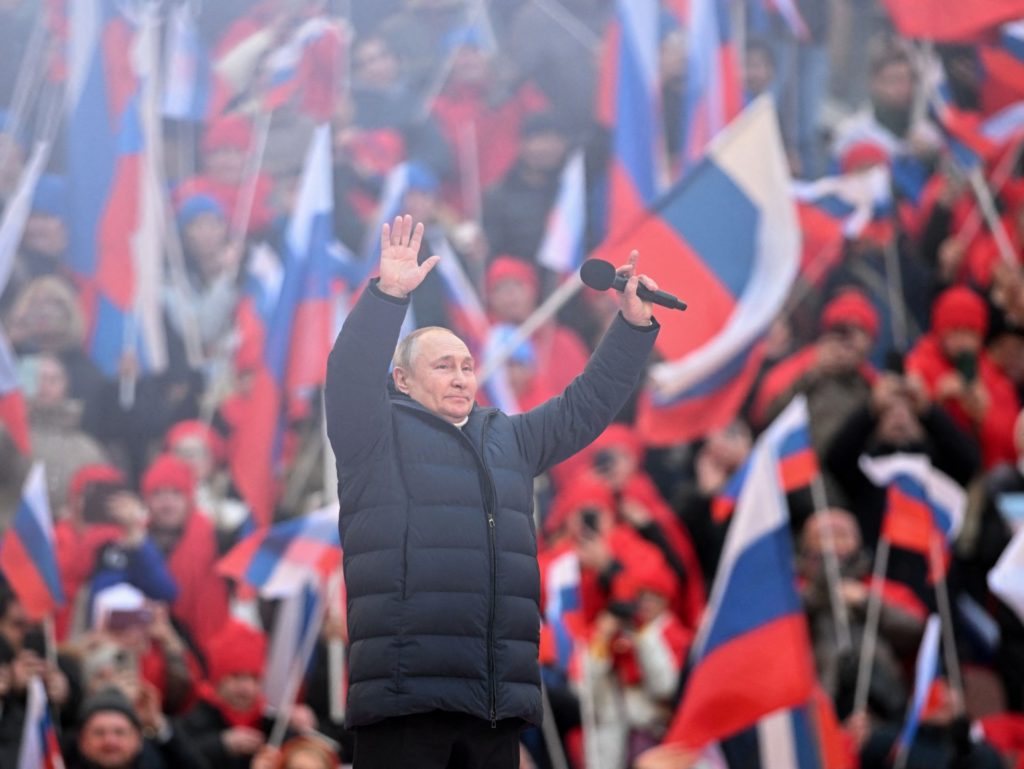
Russian President Vladimir Putin greets the audience as he attends a concert marking the eighth anniversary of Russia’s annexation of Crimea at the Luzhniki stadium in Moscow on March 18, 2022. (RAMIL SITDIKOV/POOL/AFP via Getty Images)
“Russia will have to do away with Nazism in the world twice,” Cabello claimed, referring to the Soviet Union’s participation in World War II and taking Russia’s accusations against Zelensky at face value.
In this context, Cabello turned to Colombia, a neighboring country with a long history of illegal cocaine trafficking that Maduro has been accused of enabling. The U.S. Department of Justice charged Maduro himself in 2020 with “running, together with his top lieutenants, a narco-terrorism partnership” with Colombian drug lords.
“Over there [Ukraine] they found themselves with Russia, which responded to them,” Cabello said. “That is NATO, that is what they call the global order, but a new world order will arise from this, from what is happening in Ukraine.”
“I’m not an expert on the matter, but the more time passes, it is worse for the Ukrainian Nazis because the de-Nazification will be from the root,” he concluded. “Someone said, why not take the opportunity and de-cocainize Colombia to see what’s left?”
Cabello made the remark flippantly, not elaborating on who the “someone” suggesting what he appeared to describe as an invasion is or what “de-cocainization” would look like.
Cabello’s comments were particularly notable given that extensive evidence compiled over the past decade suggests that he is one of the Western Hemisphere’s most prolific cocaine traffickers. In addition to being a longtime PSUV leader and Maduro henchman holding various titles since Maduro took over for late socialist dictator Hugo Chávez in 2013, Cabello has been credibly accused of engaging in multinational drug trafficking. Reports have mounted for years claiming Cabello is the head of the “Cartel de los Soles,” an international cocaine trafficking organization run through the Venezuelan military. Sen. Marco Rubio (R-FL) has referred to Cabello as the “Pablo Escobar of Venezuela.”
Two of Maduro’s nephews were arrested in 2016 on charges of trying to traffic cocaine into New York; the men allegedly told police that they cocaine in their position belonged to Cabello.
Cabello sued the Wall Street Journal for defamation over the accusations in 2018 but lost the lawsuit on the grounds that he could not prove the elements of defamation – namely, that the accusations were false and that they were made maliciously.
The government of Colombia, under current conservative President Iván Duque, has repeatedly condemned the Maduro regime and referred to it as a national security threat for Colombia. The Maduro regime has ties to arguably the deadliest terrorist organization in Colombian history, the communist Revolutionary Armed Forces of Colombia (FARC), which Hugo Chávez welcomed to operate in Venezuela.
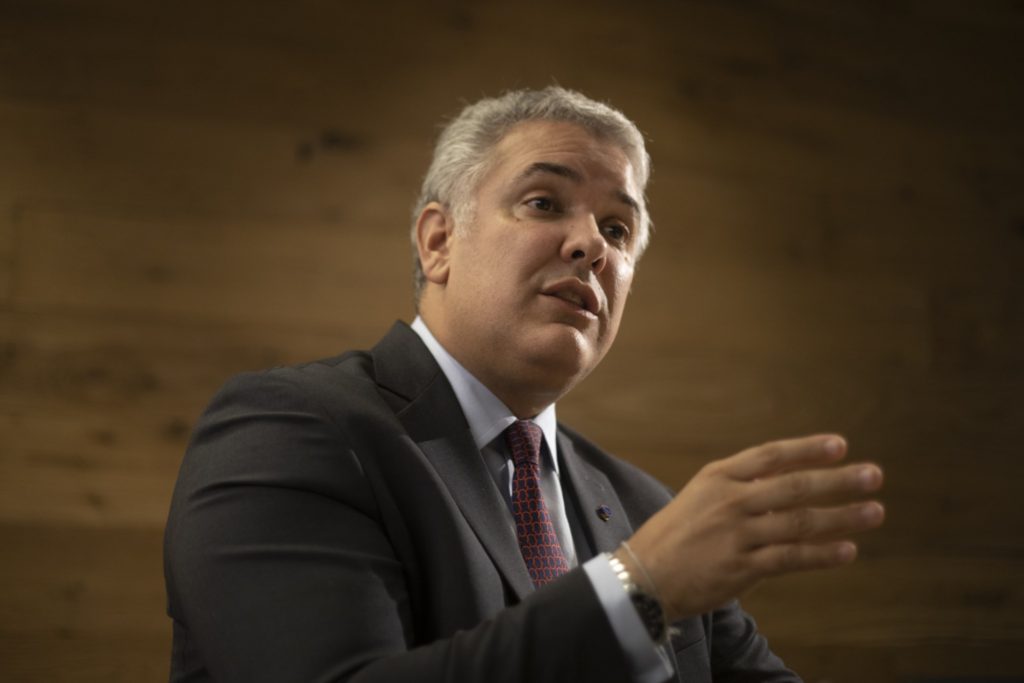
Colombia’s President Ivan Duque Marquez speaks to The Associated Press in Tel Aviv, Israel, Tuesday, Nov. 9, 2021. (AP Photo/Ariel Schalit)
“The Venezuelan dictatorship is one more link in the chain of transnational terrorism. Its corrupt structures are the handmaidens of drug cartels,” Duque told the United Nations General Assembly in 2019. “Its followers are adherents of a mafia and fuel the violence in Colombia. The dictatorship gives refuge to murderers and child rapists – and those who ignore these facts are, by their silence, accomplices of the dictatorship.”
Colombia has also expressed concerns with Russia supplying Maduro with weapons the socialist Venezuelan regime could later use to attack Colombia; Moscow reportedly asserted last month that any military aid to Maduro would not serve that purpose.
Duque expressed dismay this month after reports surfaced that President Joe Biden may be seeking to purchase oil from Maduro to offset losses from sanctioning Russia for its invasion of Ukraine. Maduro confirmed during a nationally televised appearance that Biden had sent a delegation to Caracas for “positive” discussions, but did not disclose the content of the talks.
“This is a topic that the United States will have to reflect about,” Duque said in early March. “The United States has had a position about this we have shared, which is to call things by their name. And that government is a dictatorship.”
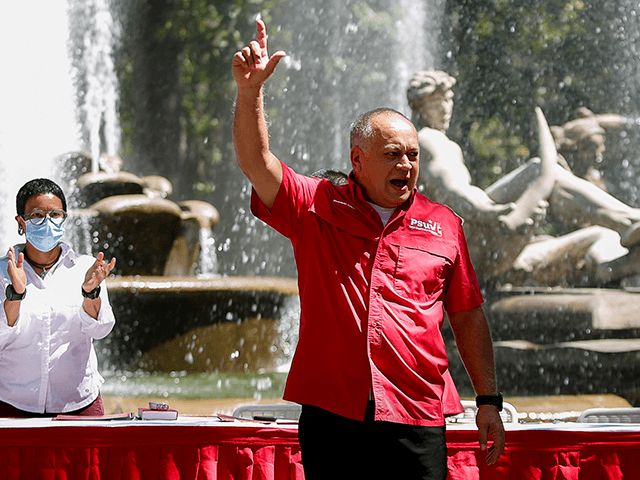
COMMENTS
Please let us know if you're having issues with commenting.